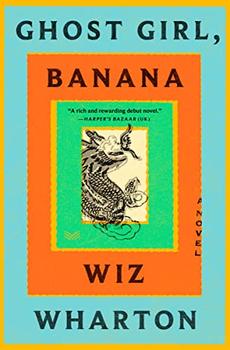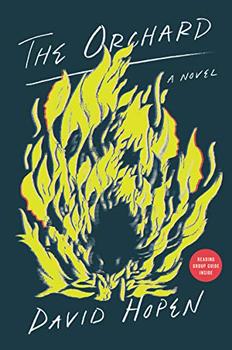Summary | Excerpt | Reading Guide | Reviews | Beyond the book | Read-Alikes | Genres & Themes | Author Bio

From prizewinning Chinese American author Susie Yang, this dazzling coming-of-age novel about a young woman's dark obsession with her privileged classmate offers sharp insights into the immigrant experience.
Ivy Lin is a thief and a liar—but you'd never know it by looking at her.
Raised outside of Boston, Ivy's immigrant grandmother relies on Ivy's mild appearance for cover as she teaches her granddaughter how to pilfer items from yard sales and second-hand shops. Thieving allows Ivy to accumulate the trappings of a suburban teen—and, most importantly, to attract the attention of Gideon Speyer, the golden boy of a wealthy political family. But when Ivy's mother discovers her trespasses, punishment is swift and Ivy is sent to China, and her dream instantly evaporates.
Years later, Ivy has grown into a poised yet restless young woman, haunted by her conflicting feelings about her upbringing and her family. Back in Boston, when Ivy bumps into Sylvia Speyer, Gideon's sister, a reconnection with Gideon seems not only inevitable—it feels like fate.
Slowly, Ivy sinks her claws into Gideon and the entire Speyer clan by attending fancy dinners, and weekend getaways to the cape. But just as Ivy is about to have everything she's ever wanted, a ghost from her past resurfaces, threatening the nearly perfect life she's worked so hard to build.
Filled with surprising twists and a nuanced exploration of class and race, White Ivy is a glimpse into the dark side of a woman who yearns for success at any cost.
Chapter 11
IVY LIN WAS A THIEF but you would never know it to look at her. Maybe that was the problem. No one ever suspected—and that made her reckless. Her features were so average and nondescript that the brain only needed a split second to develop a complete understanding of her: skinny Asian girl, quiet, overly docile around adults in uniforms. She had a way of walking, shoulders forward, chin tucked under, arms barely swinging, that rendered her invisible in the way of pigeons and janitors.
Ivy would have traded her face a thousand times over for a blue-eyed, blond-haired version like the Satterfield twins, or even a redheaded, freckly version like Liza Johnson, instead of her own Chinese one with its too-thin lips, embarrassingly high forehead, two fleshy cheeks like ripe apples before the autumn pickings. Because of those cheeks, at fourteen years old, she was often mistaken for an elementary school student—an unfortunate hindrance in everything except thieving, in ...
For Ivy, the assimilation process is the site of a schism between who she was as a child in China and the hyphenated version of herself that develops in America. The novel details how much of her life is spent negotiating and trying to reconcile these parts of herself. It is truly a white-knuckle ride. White Ivy has been described as a thriller, a dark romance, a coming-of-age story and more. This excellent and thought-provoking novel is as difficult to classify and unpredictable as Ivy herself. But one thing is certain — readers won't soon forget it, nor its complex protagonist, Ivy Lin...continued
Full Review
(776 words)
This review is available to non-members for a limited time. For full access,
become a member today.
(Reviewed by Debbie Morrison).
 Joshua Ferris, prize-winning author of To Rise Again at a Decent Hour
White Ivy is magic and a necessary corrective both to the stereotypes and the pieties that too easily characterize the immigrant experience. Most pleasing of all is the story of Ivy Lin, a daring young woman in search of herself, and not soon to be forgotten.
Joshua Ferris, prize-winning author of To Rise Again at a Decent Hour
White Ivy is magic and a necessary corrective both to the stereotypes and the pieties that too easily characterize the immigrant experience. Most pleasing of all is the story of Ivy Lin, a daring young woman in search of herself, and not soon to be forgotten. Lucy Tan, author of What We Were Promised
White Ivy is dark and delicious. Ivy Lin eviscerates the model minority stereotype with a smile on her lips and a boot on your neck. Cancel your weekend plans, because you won't be able to take your eyes off Ivy Lin.
Lucy Tan, author of What We Were Promised
White Ivy is dark and delicious. Ivy Lin eviscerates the model minority stereotype with a smile on her lips and a boot on your neck. Cancel your weekend plans, because you won't be able to take your eyes off Ivy Lin.Of all the demands made of Susie Yang's character Ivy in her debut novel White Ivy, few are more pernicious than the constant demand that she be ting hua, or a "good" girl. For Ivy, to be ting hua means, more than anything else, obscuring her individuality and right to self-determination so that her family can see the version of her they are most comfortable with.
In an article for Vice, writer Doris Lam explains how this concept of "filial piety — a traditional Chinese moral value where children should respect, love and take care of parents to give back and honour them," can have a negative impact on first-generation children. Acculturation is the process whereby a person becomes assimilated — adopts behaviors that will ...
This "beyond the book" feature is available to non-members for a limited time. Join today for full access.

If you liked White Ivy, try these:

by Wiz Wharton
Published 2025
Set between the last years of the "Chinese Windrush" in 1966 and Hong Kong's Handover to China in 1997, a mysterious inheritance sees a young woman from London uncovering buried secrets in her late mother's homeland in this captivating, wry debut about family, identity, and the price of belonging.

by David Hopen
Published 2021
A commanding debut and a poignant coming-of-age story about a devout Jewish high school student whose plunge into the secularized world threatens everything he knows of himself.




The third-rate mind is only happy when it is thinking with the majority. The second-rate mind is only happy when it...
Click Here to find out who said this, as well as discovering other famous literary quotes!